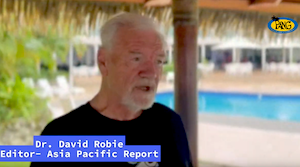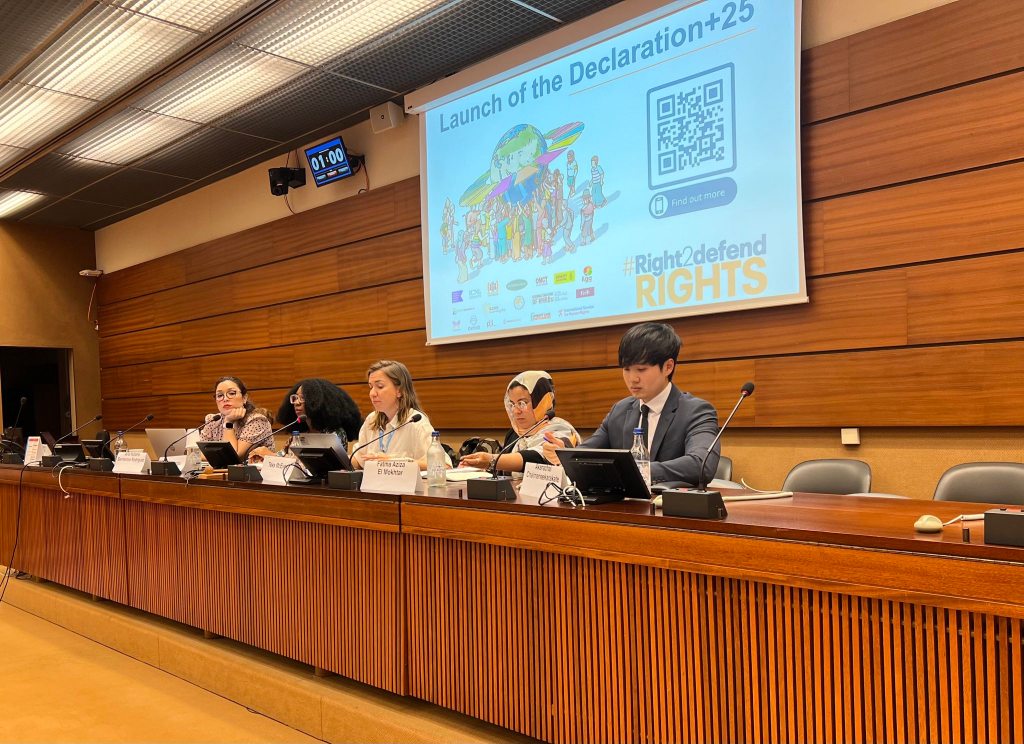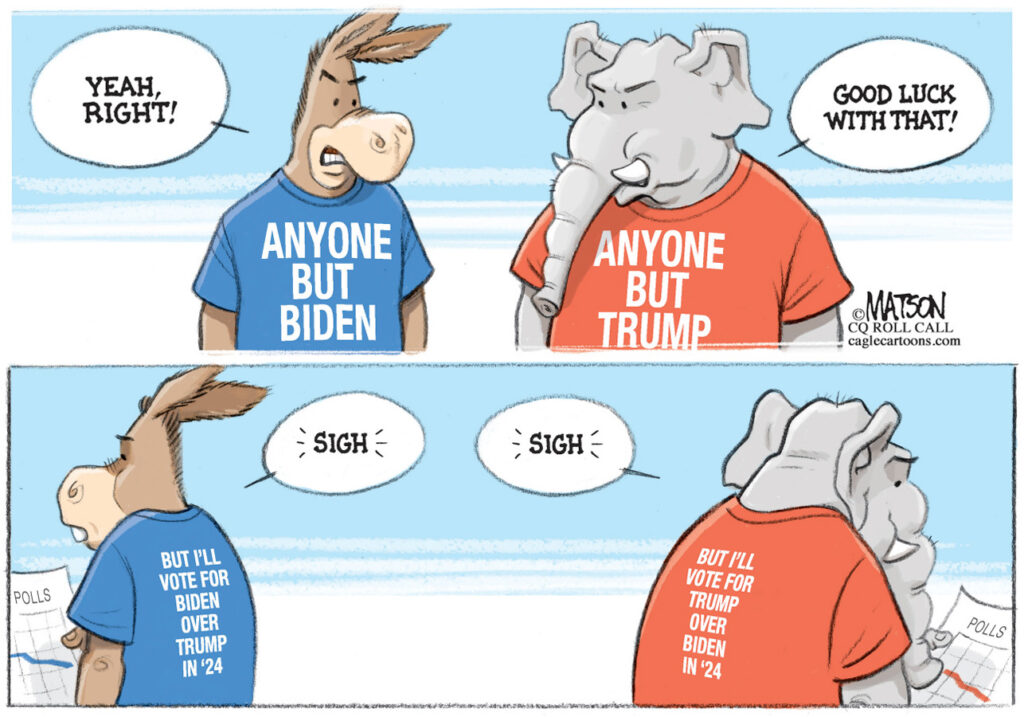A revelation — in order to liberate Palestinians from a century of oppression and prevent their genocide, Jews must liberate themselves from centuries of conditioning that trained them to pose as perpetual victims while victimizing others. This is happening and too slowly; progressive Jews are wrestling with reacting to Israel’s genocide of the Palestinian people without crippling the Jewish community. Almost entirely anti-Zionist in the 19th century, Zionist advances have enticed the Jewish community to split between Zionists and anti-Zionists. The former have gained control of a community that never had a higher hierarchy. Jew is preceded by an adjective ─ Zionist or non-Zionist. Those with the former adjective have witnessed pockets of hatred against their deliberate deceptions and corrosive actions. Concurrent with Jewish genocide of the Palestinians, hatred of Jews has swelled universally, appearing in Africa and Asia, where relatively few Jewish communities now exist.
The Jews during Zionism’s formation did not believe in or trust Zionism.
Reform Judaism’s Declaration of Principles: 1885 Pittsburgh Conference stated,
We consider ourselves no longer a nation, but a religious community, and therefore expect neither a return to Palestine, nor a sacrificial worship under the sons of Aaron, nor the restoration of any of the laws concerning the Jewish state.
Between 1881 and 1914, 2.5 million Jews migrated from Russia ─ 1.7 million to America, 500,000 to Western Europe, almost 300,000 to other nations, and only 30,000 – 50,000 to Palestine. Of the latter, 15,000 returned to Russia. Jews rejected Zionism from its outset.
Despite rejection, Zionist supporters managed to skew Western governments’ policies to favor their mission. A worldwide propaganda machine obscures Identification of Israel as a criminal state that willfully murders Palestinians, steals their lands, has ethnically cleansed them, buried their villages under rubble, and destroyed their history and heritage. Quick to use the expression ‘Holocaust denial” on anyone who questions aspects of the Holocaust, the Zionists impressed upon the Jews the use of “denial” for anything that smacks of Jewish malfeasance, and includes the greatest malfeasance, the act of genocide. Charges of malfeasance by Jews are converted into anti-Semitism, truth becomes denied, anger of Jews against a manufactured hostile world is internalized, and bitterness against hostile Jews is intensified. The Zionists have used debts as collateral, turning valid charges against them into sympathy for their cause.
Start with the beginning of Zionism.
Although antipathy toward Jews and Judaism remained strong in Christian Europe, physical attacks on western European Jews, after a brief episode of the 1819-1826 Hep-Hep riots in Germany, were relatively few.
Often mentioned is the Dreyfus case, where a Jewish military officer in the 1896 French army was twice sentenced and later pardoned for giving military secrets to the Germans. Highlighted as an example of anti-Semitism in a French military, “rife with anti-Semitism,” and psychologically extended to the French populace, the Dreyfus case circulated for a century in American media, whose audience had no relation to the French incident (why?), giving the Dreyfus case a life of its own, and making it seem that there was not one Dreyfus but thousands. The Zionists needed a Dreyfus to substantiate their mission for all time, refusing to recognize that the Dreyfus case contradicted the Zionist mission; being an isolated case, it proved Jews could integrate into European institutions and receive equal justice.
Was the French military rife with anti-Semitism? According to Piers Paul, The Dreyfus Affair. p. 83, “The French army of the period was relatively open to entry and advancement by talent, with an estimated 300 Jewish officers, of whom ten were generals.” Only five African-American officers in the much larger US army in WWII. Why not emphasize the opposite of what the Zionists proffered; French Jews received equal and eventual justice. After the French Revolution, physical attacks on Jews rarely occurred in France.
Imperial Russia was another European community that the Zionists accused of serious anti-Semitism, exaggerating the damage done to Jewish communities in a multi-ethnic nation ravaged with ethnic disturbances. They used a special term, “pogroms,” to characterize attacks on Jews. Note that prejudice to other ethnicities does not qualify for a special term, such as “anti-Semitism,” nor does violence against any of them.
A lack of communications in Russia during the 19th century, a tendency to create sensational news, and a willingness to accept rumors make it difficult to ascertain the extent of attacks on Russia’s Jewish community. The YIVO Encyclopedia of Jews in Eastern Europe, a reference work on the history and culture of Eastern Europe Jewry, prepared by the YIVO Institute for Jewish Research and published by Yale University Press in 2008, is a more objective and authoritative source. Excerpts from their work can be found here.
Anti-Jewish violence in the Russian Empire before 1881 was a rare event, confined largely to the rapidly expanding Black Sea entrepot of Odessa. In Odessa, Greeks and Jews, two rival ethnic and economic communities, lived side by side. The first Odessa pogrom, in 1821, was linked to the outbreak of the Greek War for Independence, during which the Jews were accused of sympathizing with the Ottoman authorities. Although the pogrom of 1871 was occasioned in part by a rumor that Jews had vandalized the Greek community’s church, many non-Greeks participated, as they had done during earlier disorders in 1859.
After Alexander II became Tsar in 1855, he lessened anti-Jewish edicts, rescinded forced conscription, allowed Jews to attend universities, and permitted Jewish emigration from the Pale. His assassination in 1881 prompted Tsar Alexander III to reverse his father’s actions. Because some Jews were involved in Russia’s revolutionary party, Narodnaya Volya (“People’s Will”), which organized the assassination, the assassination acted as a catalyst for a wave of attacks on Jews during 1881-83.
Typically, the pogroms of this period originated in large cities, and then spread to surrounding villages, traveling along means of communication such as rivers and railroads. Violence was largely directed against the property of Jews rather than their persons. In the course of more than 250 individual events, millions of rubles worth of Jewish property was destroyed. The total number of fatalities is disputed but may have been as few as 50, half of them pogromshchiki who were killed when troops opened fire on rioting mobs.
Note that this was one large “pogrom,” which emanated from one incident that touched the Russian nerve, was directed mainly against Jewish property, did not have government support, and faded out. “Michael Aronson has sought to refute the long-standing belief that the regime of Alexander III actively conspired to lead the Russian masses into savage riots against the Jews. In Aronson’s view the pogroms were spontaneous, by which he means not that they happened without cause, but that they happened largely without prior planning or organization.”
Missing from references to the attacks on the Jewish population is that the Tsars inherited Jewish and other populations after the 1791-1795 partitions of Poland and sought means to integrate the new ethnicities into a Russian way of life. Nevertheless, in Tsarist Russia, the principal population to which Zionism should have had appeal, there is no evidence that a massive number of Jews accepted Zionism.
Unwaveringly secularist in its beliefs, the Russian Bund discarded the idea of a Holy Land and a sacred tongue. Its language was Yiddish, spoken by millions of Jews throughout the Pale. This was also the source of the organization’s four principles: socialism, secularism, Yiddish, and doyikayt or localness. The latter concept was encapsulated in the Bund slogan: “There, where we live, that is our country.” The Bund disapproved greatly of Zionism and considered the idea of emigrating to Palestine to be political escapism.
Imperial Russia contained several minorities that economically contested and attacked one another. Economic rivalry was the leading cause of attacks on Jews. From Middleman Minorities and Ethnic Violence: Anti-Jewish Pogroms in the Russian Empire, The Review of Economic Studies, Volume 87, Issue 1, January 2020.
Using detailed panel data from the Pale of Settlement area between 1800 and 1927, we document that anti-Jewish pogroms—mob violence against the Jewish minority—broke out when economic shocks coincided with political turmoil. When this happened, pogroms primarily occurred in places where Jews dominated middleman occupations, i.e., moneylending and grain trading. This evidence is inconsistent with the scapegoating hypothesis, according to which Jews were blamed for all misfortunes of the majority. Instead, the evidence is consistent with the politico-economic mechanism, in which Jewish middlemen served as providers of insurance against economic shocks to peasants and urban grain buyers in a relationship based on repeated interactions.
Violation of any human life can not be underestimated or ignored; Jews suffered in the 19th century Russian Empire, and so did almost everyone else, including native Russians. Placed in context — location, time, comparison of the fate and life of Jews to other minorities, and internal and external factors that favored the Jews — the reasons for Zionists to behave as the rescuer of their co-religionists is dubious.
For others, also not of the Russian Orthodox faith, persecution was magnitudes worse. From Balfour Project:
The Moscow Patriarchate presided over the state religion and other believers were generally disadvantaged, often persecuted, or sometimes driven from Russian lands. The non-Orthodox were despised as unbelievers and thousands of Catholics were deported to Siberia in the mid-19th century. At the same time, around half a million Muslims were driven from the Caucasus to the Ottoman Empire, Iran or further afield. At the south-eastern border of the Pale of Settlement began the lands of the Circassians, a mostly Muslim group who had lived since the 14th century along the northern Black Sea coast from Sochi and eastwards into the Caucasus mountains. A long war of attrition ended in the genocide of 1865. According to official Russian statistics, the population was reduced by 97 per cent. At least 200,000, and possibly several hundred thousand people died through ethnic cleansing, hunger, epidemics and bitterly cold weather.
Compared to other ethnicities ─ Native American, slaved Africans, Chinese, Irish, and Catholic in the U.S., and Chinese, Indian, and African during the age of Imperialism, the persecution and distress of European Jews was insignificant. Yet, the Zionists made it appear that Jews were the most suffering people in the world and the world believed it.
Despite the overwhelming verbal and physical rejection of Zionism by worldwide Jewry, a small group of conspirators managed to convince the British government to issue the 1917 Balfour Declaration, which is not an official or legal instrument. It is not even a Declaration. It is a letter from Lord Balfour to Lord Rothschild, which has a phrase, “declaration of sympathy,” from which it was given the more lofty description of declaration. Who are these two guys?
Arthur James Balfour, known as Lord Balfour, served as Prime Minister of the United Kingdom from 1902 to 1905 and as foreign secretary from 1916 to 1919,
Lionel Walter Rothschild was a British zoologist from the wealthy Rothschild banking family, who served as a Conservative member of Parliament from 1899 to 1910. He was sympathetic to the Zionist cause and had an eminent position in the Anglo-Jewish community.
The letter:
Why was the letter issued, what did it exactly mean, and why did it have impact? Acceptable answers have not been supplied. One clue is from Minutes of British War Cabinet Meetings
Meeting No. 245, Minute No. 18, 4 October 1917: 4 October 1917: “… [Balfour] stated that the German Government were making great efforts to capture the sympathy of the Zionist Movement.”
Meeting No. 261, Minute No. 12, 31 October 1917
With reference to War Cabinet 245, Minute 18, the War Cabinet had before them a note by the Secretary, and also a memorandum by Lord Curzon on the subject of the Zionist movement. The Secretary of State for Foreign Affairs stated that he gathered that everyone was now agreed that, from a purely diplomatic and political point of view, it was desirable that some declaration favourable to the aspirations of the Jewish nationalists should now be made.
World leaders failed to recognize the ominous outcomes of their San Remo Peace Conference and the newly formed League of Nations, which created a new international order that sliced the Middle East for the major European powers. Both approved establishment of a Jewish presence in the British Mandate in accord with the Balfour Letter. Despite these achievements, progress for obtaining a central headquarters for Zionism went slowly until US immigration laws and persecution of German Jews renewed Zionist life.
The year 1924 was fortuitous for the Zionists. The US Immigration Act closed the doors to mass Jewish immigration from East European nations and the Act steered Jews to migrate to Palestine. By 1931, Palestine housed 175,000 Jews. The economic depression slowed the migration. The rise of Nazi Germany reinvigorated it.
After the Nazis began their rule, they slowly froze Jewish assets. Although not proven, a principal reason for Germany slowly freezing Jewish assets and engaging in its own boycott of Jewish enterprises was the boycott of German goods, which was organized by Jewish groups in the United States as a response to the confined and sporadic violence and harassment by Nazi Party members against Jews in early 1933. Zionists saw the frozen assets as a means to bring Jews to the British Mandate.
By the Ha’avara Transfer Agreement with Nazi Germany, the Zionists used German Jewish assets, including bank deposits to purchase German products that were exported to the Jewish-owned Ha’avara Company in Tel-Aviv. A portion of the money from the sales of the goods went to the emigrants, who could leave Germany and regain assets after arrival in Palestine and in an amount corresponding to their deposits in German banks. The Zionists enabled the Nazi regime to circumvent the international boycott campaign that its policies had provoked. The Zionist movement, which had become the only authorized Jewish organization in Nazi Germany, was able to transfer about 53,000 Jews to Palestine. Again, the Zionists turned catastrophe to the Jews into an opportunity for themselves.
Zionist luck, if that is the proper word for gaining from calamities to others, continued. Revelations of the Holocaust and the plight of Jewish refugees after World War II gained worldwide sympathy for the Zionist cause. About 136,000 displaced Jews came to Palestine, mostly out of desperation and without intention to remain. The Cold War provided the most decisive benefit for Zionism ─ Soviet Union support for an Israeli state drove the United States to compete for Zionist attention. Votes from both nations, bribes, and arm twisting provided a narrow victory for United Nations Declaration 181 and the Zionists established their state.
Because neither state had official names at that time, designations as Arab and Jewish states were used to map out contours of land where the major portions of the ethnicities would live. President Truman recognized the Jewish state, which became Israel just before he approved recognition. The U.S. president failed to observe that, although the state was bi-national, a small Zionist group took control of all apparatus of the new state and did that without consulting Palestinian leadership.
The UN did not create two states; it divided one Palestinian state into two states ─ a Palestinian state composed of almost 100 percent Palestinians, and another mostly Palestinian state composed of about 70 percent who were native to the area (400,000 Palestinians), a small contingent of foreign Jews that had come as Zionists to live permanently in Palestine (200,000), and another larger contingent of foreign Jews (300,000) that arrived for expediency and not with original intentions of remaining in the British Mandate. The Mandate was only a way station for Jews caught in the tragedies during the 1930s and World War II. If neither cataclysm occurred, would these Jews have gone to the Mandate? Without them, how many Jews would have been there in 1947?
David Ben-Gurion and a small clique of opportunists took advantage of an ill-advised UN, an ill-led and ill- equipped Palestinian community, and a confused world to declare their state, and, with seasoned militia forces — Haganah, Irgun, Lehi, and Palmach — cleansed the area of Palestinians and established Israel.
The Zionists turned lying, cheating, and deceiving into an accepted ethnic cleansing. During the next years, they continued the lies, cheats, and deceptions to steal more land and oppress Palestinians. Taking advantage of the October 7, 2023 attack by Hamas, the Zionist Jews have embarked on a genocide of the Palestinian people, masking it as a defense of their land against a force that has no offensive power to conquer anything.
The Zionists made the struggle (which they engineered) a zero-sum game of “us” or “them.” The “us” is those who steal the land and the patrimony and the lives of “them.” They forced the Jews into a choice, reasoning that the powers in control will favor “us.” This poses a difficulty for Jews who will not support genocide and, therefore, cannot support “us,” and fear that for the Palestinians to survive the Jews in Israel will not survive. A different look — if the Jews liberate themselves from the conditioned grip that Zionism has on them and differentiate between a liberated Jew and a Zionist Jew, the liberated Jews will lose their paranoid fear and the Zionist Jews will lose their power, which is based upon creating paranoia and fear in fellow Jews.
Unfortunately, the liberation of the Jews is not foreseen and the decimation of innocents will occur — a replay of the story of Purim, “when having obtained royal permission to strike their enemies, including women and children, the Jews kill over seventy-five thousand people! Esther then further seeks permission for another day of massacre.”
Unleashed from subjugation and drowned with power, they seek another day of massacre. Is Joshua, who slew the inhabitants of Jericho, eradicated the Canaanites, and is a hero in Jewish mythology, a clue to the mentality of leaders of the Jewish people? Do the horrors visited upon the Gazans, purposeful and wanton killings and massacres beyond credulity, carry Joshua to modern times and tell a cautious story of the Zionist Jews?
The post The Liberation of the Jews first appeared on Dissident Voice.This post was originally published on Dissident Voice.








